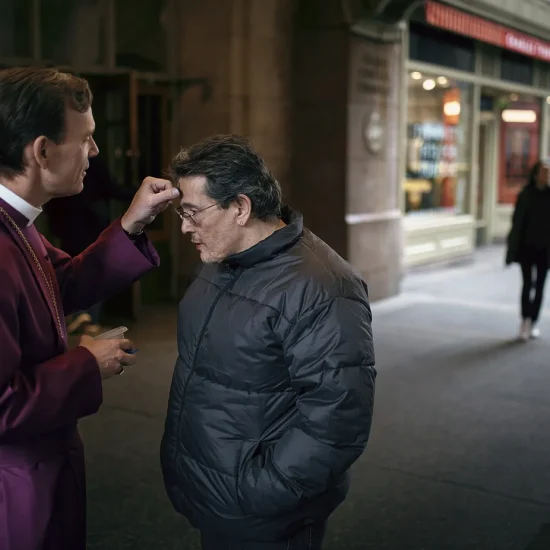One of my favorite movies of 2016 was a science fiction film called “Arrival.” The movie follows a linguist and a physicist (played by Amy Adams and Jeremy Renner) who are brought in by the U.S. military after alien ships appear on multiple continents around the globe. Their job is to try to decipher the alien’s language. Eventually — spoiler alert — the linguist does decipher the alien language and stops imminent military action from one of the world’s superpowers, essentially saving the world from a disaster.
 Terrell CarterOn the surface, the movie is about how the world would respond if aliens really did exist and showed up on earth one day. But, the movie is also about something else. Something that’s relevant to the season of Lent and Easter.
Terrell CarterOn the surface, the movie is about how the world would respond if aliens really did exist and showed up on earth one day. But, the movie is also about something else. Something that’s relevant to the season of Lent and Easter.
As the linguist learns how to read the alien language, something strange starts to happen to her. She begins to have memories of things that have not even occurred yet. She has a memory of marrying the physicist, whom she has only known for a few days. She has a memory of having a daughter who is yet to be born. Unfortunately, she also has a memory that her daughter, who brings her so much joy, died of an incurable disease in her early teens.
The linguist begins to realize that as she learns the alien’s language, time no longer runs in a linear pattern for her. The future is now the past for her. She knows things that are going to happen in her life. And she has a serious choice to make. Will she still marry this man with whom she’s working and have a daughter that she knows will die a long, slow, horrible death?
At its core, the movie is not about aliens and military action against them. The movie is about the decision she eventually faces. If she knows that the greatest thing that would ever happen in her life — having a baby — would also be the most painful thing to happen in her life — that baby dying — would she still go through with it?
What would you do if you were in her shoes? Would you go through with it in order to experience the joy and the good times that came with that child? Or would you decline in order for that child to not go through years of pain and heartache and suffering?
For some of us, that may not be a theoretical question. Some of us may have had to make that kind of decision when we were told by a doctor that our child would be born with a particular medical condition. Some of us may have had to make that kind of decision when a doctor told us that a loved one who was okay yesterday is now in a place that they may never recover from. And if they did recover, they would no longer be the same person that you knew.
In a sense, this is not a theoretical question as we enter the Lenten season, the season where we anticipate that the baby whose birth we celebrated at Christmas is now a man who is faced with a challenge like the linguist in the movie. Would he fulfill the purpose he came to Earth for? Would he allow himself to be beaten and bruised and eventually killed for people who did not care about him or his message?
We do not have to stress over the answer because we know how the story ends. He was willing, and he did allow himself to go through all of those things. But that was not the end of the story. He rose again.
That is why we enter this season within the church calendar with a sense of reverence, awe and self-reflection. Because Jesus knew what would happen and still allowed it to happen to himself. And he did it out of love for those who scoffed at him and for us. Jesus the Christ was willing to enter history and experience all that he endured knowing that the joy of our restored relationships with God would be worth it. I pray that would be the thing we reflect on most intentionally during this season.
Amen.
Terrell Carter is assistant professor and director of contextualized learning at Central Baptist Theological Seminary in Shawnee, Kansas, and pastor of Webster Groves Baptist Church in Webster Groves, Mo.






